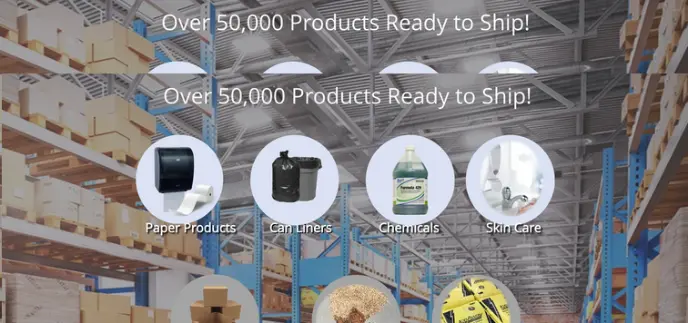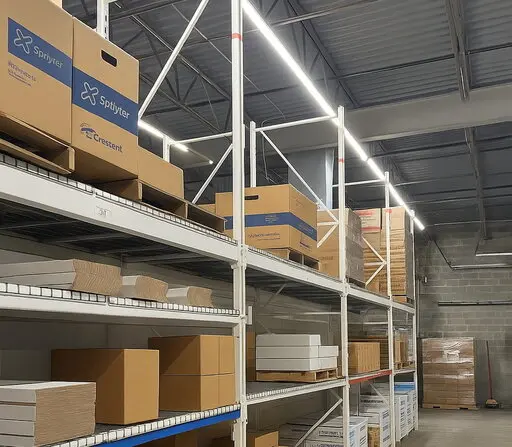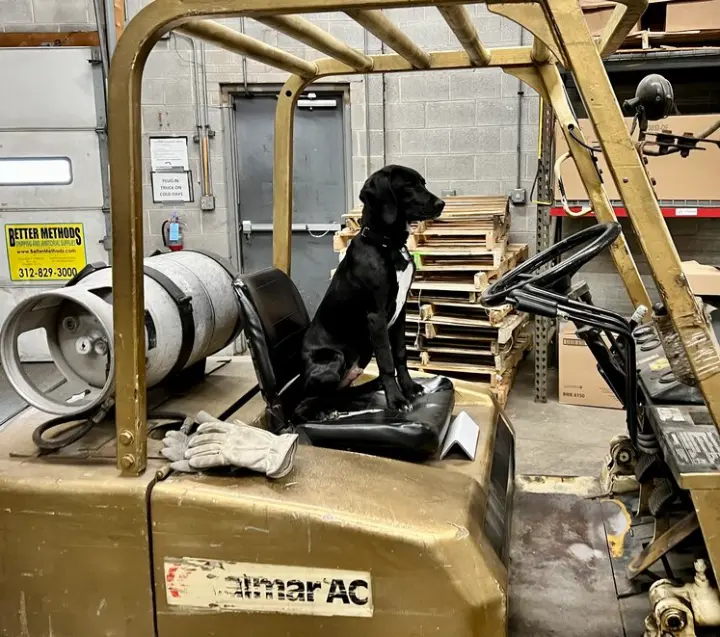When Single Source Supply decided to modernize its operations, owner Michael Schulze knew that efficiency and visibility were key. What began as a small, service-focused distributor of janitorial and packaging supplies has grown into a nimble company leveraging Odoo’s all-in-one platform to save time, eliminate errors, and centralize processes that once required hours of manual work.
Founded in 1967 as All American Paper, the company started as a local family-owned distributor of janitorial and cleaning supplies. Over the years, the company expanded its product lines to include packaging, shipping, and breakroom supplies, serving schools, factories, warehouses, and contract cleaners in the greater Chicago-land Market.
When Michael Schulze took over the company in 2018, he brought a fresh perspective to operations. Over the next few years, the company acquired additional complementary businesses, eventually rebranding as Single Source Supply to reflect its broader reach and commitment to being “a single source” for customers’ janitorial, packaging, and shipping needs.
"We’re much smaller than most of our competitors, so we have to be service-focused and very nimble."

The
Challenges

Before moving to Odoo, Single Source Supply relied entirely on QuickBooks for operations. The system was not set up for complex distribution processes, and the company faced mounting inefficiencies as it grew.
Despite QuickBooks’ automation capabilities, they were not being utilized. Orders were processed by hand, with staff writing down daily requests, checking inventory, and manually creating purchase orders at the end of the day. With over 200 different manufacturers, maintaining accurate pricing and inventory was cumbersome and error-prone. Financial and inventory records were difficult to reconcile, making visibility and reporting a daily struggle.
As Schulze described, “the company outgrew the way that we were using QuickBooks.” He explored potential bolt-ons to enhance QuickBooks as well as proprietary industry-specific ERP platforms, but after six months of research, Odoo emerged as the clear choice.
"I looked at probably 20 different ERP platforms… Odoo just kind of rose to the top of the list."

Streamlining Processes and Saving Time

Schulze’s goal was simple: find a platform that would replace QuickBooks but “do it better.” His expectations were simple: when evaluating a potential system, he asked himself whether he would be able to run the business from a laptop on a beach. If not, he kept looking.
After eight months of preparation and data migration, Single Source Supply went live with Odoo Online in 2019, implementing Contacts, Sales, Purchase, Inventory, and Accounting apps. These core modules became the foundation for a unified system that streamlined operations, increased visibility, and provided the scalability the company needed for future growth:
The most significant transformation came in inventory and purchase controls. Tasks that once required multiple hours per day, like reviewing orders and creating purchase requests, now take only a few minutes. The team runs a scheduler to automatically generate Requests for Quotation (RFQs), reviews them, and sends them to manufacturers, allowing us to create a smooth Just-In-Time (JIT) ordering process.
"That probably took what was a multi-hour process and cut it down to 20 minutes. This automation alone saves Single Source Supply 20 to 25 man-hours per week, freeing the team to focus on customer service and growth."

Accounting provided Schulze with a level of financial insight he never had before. Under QuickBooks, the company could only access basic profit-and-loss statements, limiting visibility into real profitability. With Odoo, the team gained real-time tracking of costs, margins, and inventory value, and other soft costs, allowing for better decision-making and long-term planning.
Another major improvement has been the ease of accessing information. Schulze explained that in QuickBooks, “it was eight or ten clicks to find something,” whereas in Odoo, “one or two clicks” is enough to locate any record. Having all data consolidated in one place has reduced errors and boosted responsiveness across departments.
The activity logs and record notes have become indispensable. Schulze highlighted how the log of every activity on a record, something he hadn’t initially considered, turned out to be one of the most valuable tools for tracking operations. “It is like having a ‘proof of delivery slip’ for every operation. No more wondering when something was done or by whom.”
Equally transformative has been Odoo’s flexibility and customization. Using Odoo Studio, the company can easily modify forms and add fields to fit unique client needs. For example, one customer required their own part numbers to appear on labels, a task that would have been “a deal breaker” with other ERPs but was solved quickly in Odoo.
"It’s so simple through Studio where we can just add a field, do a little manipulation, and it’s done."

Coming up for Single Source Supply

As Single Source Supply continues to grow, it has integrated three companies so far, including one with light manufacturing operations. This led Schulze to implement the Manufacturing module, which now provides visibility into the true cost of goods, a feature the previous QuickBooks system couldn’t deliver.
The company is also upgrading from Odoo version 12 to version 18, alongside a new and more robust server to handle an expanding database. Schulze expects this migration to be completed within 60 days, bringing faster performance and access to even more advanced features.
In the coming months, the team will adopt Planning (for project and workflow management). Looking further ahead, they’re exploring the Website module to gain greater control over their online presence and reduce reliance on third-party vendors.
"Since the adoption of the single fee pricing structure, we’re kind of like a kid in a candy store, looking at what we can add next."

Single Source Supply’s journey shows how a service-driven company can leverage technology to compete with much larger players. By embracing Odoo’s platform, the company transformed time-consuming manual processes into efficient, automated workflows. However, as Single Source Supply demonstrates, modernization doesn’t mean losing your identity: it means equipping it to grow.

